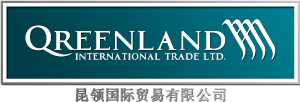Juli 1, 2018
Branding & Labeling
Store Brands
an affordable business concept for retailers

If we talk about store brands, most people think of supermarkets. Therefore, we use supermarkets to illustrate the concept of launching your own store brand. Every supermarket puts corporate brands in its shelves from suppliers and companies that are well-known by brand affine customers. Hence, a supermarket takes advantage of brands that have a great reputation as they attract customers. In addition to that, most supermarket chains add store brands to shelves. Once a customer buys groceries at a local supermarket, corporate brands are pull factor due to marketing strategies like advertisements in media and brand reputation tailored to customer’s brand awareness.
Both, corporate and store brands influence buying decisions of customers but in different ways. Price sensitive customers tend to choose store brands rather than corporate brands as most supermarket brands are cheaper. Those products equate with bargain the same quality at a lower price.
Supermarket chains work often together with specialized producers of private labels or obtain a slightly modified product from a corporate brand. Those producers offer their knowledge and experience of specific products to supermarket chains, tailoring private label products to clients’ specific requirements. Supermarkets benefit from these offerings as they don’t need to invest in research and development (R & D), enabling them to offer their store brands at a lower price than corporate brands do. In addition to that, supermarket chains usually don’t run marketing campaigns to build store brand reputation. As consequence, price sensitive customers are likely to pick store brands while supermarkets still make lots of profit even though store brands are sold at a low price. Furthermore, supermarket chains create customer loyalty by having store brands. This concept is the so called private labeling practice.
The same method is used by supermarkets that obtain store brands from their own suppliers. A supplier might produce a corporate brand and drives big marketing campaigns to advertise its own products. It is common practice, that those suppliers offer private labeling to supermarket chains as well. The difference to specialized private label companies is, that they modify the recipe or characteristics of a store brand to a slightly lower quality. Heinze ketchup produces its own corporate brand but also offers private label products such as tomato sauce to supermarket chains. Of course, they change the recipe and don’t allow supermarket chains to call it ketchup.
Both, specialized private label companies and corporate brand suppliers offer their resources to supermarket chains without creating a conflict. If a supermarket places an order to a company that produces a specific product but doesn’t require recipe modification, it is called generics. Generic products consist of the same recipe offered to various clients. Private label products are always slightly modified so that they appear more unique than generics do. The biggest advantage of generics is low price, disadvantaged by skipping product differentiation.
As mentioned before, private labels and generics are store brands that make more profit for supermarkets even though it sells at lower price than corporate brands do. Corporate brands are more expensive due to the investment into R & D and marketing campaigns that promote products and build brand reputation. It’s a resource consuming process. Once a well-known corporate brand is displayed in supermarkets, it attracts loyal customers. Hence, customers often choose corporate brands to put in their shopping trolley while picking also from store brands that are positioned on lower levels of shelves. Those customers often buy up to one third of store brands when doing groceries.
Sometimes, store brands grow to corporate brands. That happens, if a supermarket chain offers its store brand to other grocery chains or to other retail companies. It illustrates, that the private label concept allows supermarkets to launch their own store brand by lower investments while having the opportunity to grow store brands to a corporate brand. In general, we can find plenty of private labels or even generics in supermarkets than we might think of.
Sometimes, a corporate brand can become a private label as well. That happens, if a supermarket chain obtains the license or the corporate brand itself and sells that brand exclusively at their own supermarkets. Supermarkets benefit from the reputation of corporate brands as they come along with customer loyalty.
The bottom line is that supermarket customers buy more private label products (store brands) in supermarkets than they are aware of. Hence, if you consider to launch your own store brand but hesitate to invest too much during your start-up stage, think about the private labeling practice.
Tags:
- affordable
- attract
- awareness
- bargain
- benefit
- bottom line
- brand
- brand affine
- brand reputation
- business
- campaign
- cheap
- client
- company
- concept
- corporate brand
- customer
- differentiation
- displayed
- generics
- grocery
- Heinze
- investment
- launch
- license
- loyalty
- marketing
- media
- method
- modification
- opportunity
- price sensitive
- private label
- private labeling practice
- producer
- product
- profit
- pull
- R & D
- research & development
- resource
- retail
- shopping
- shopping trolley
- specialized
- start-up
- store
- store brand
- supermarket
- supermarket chain
- supplier
- tailored

